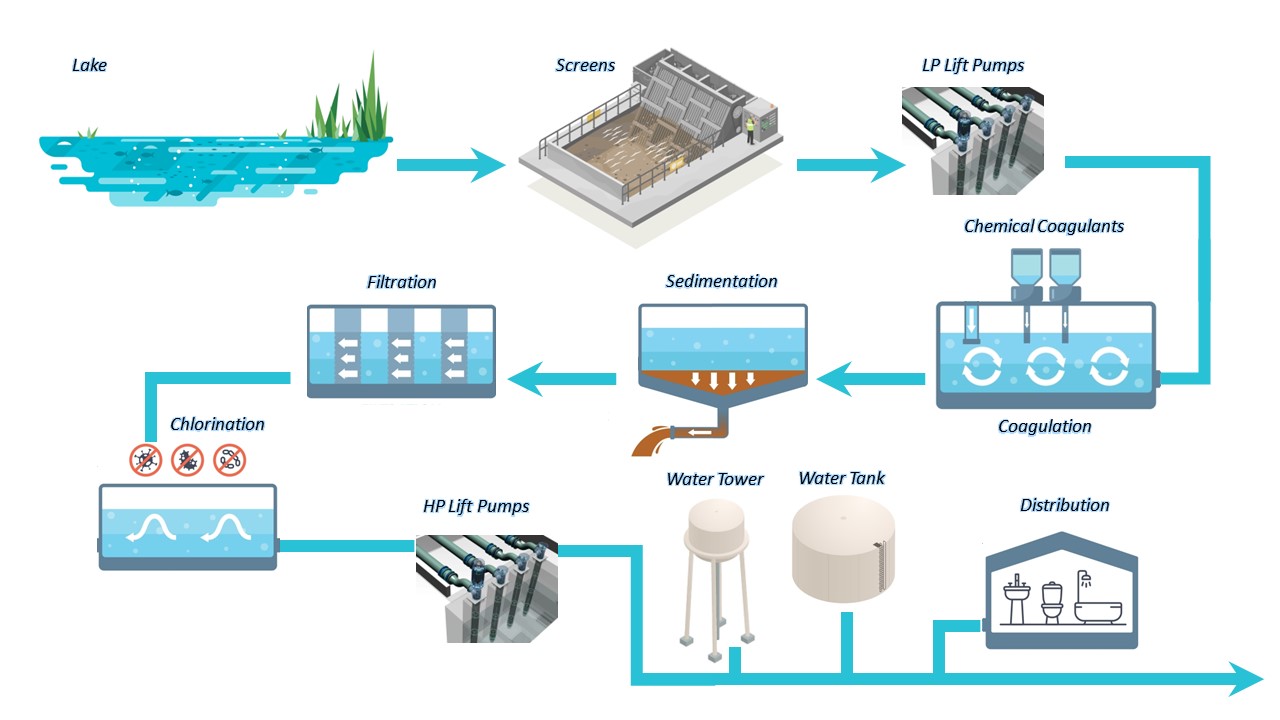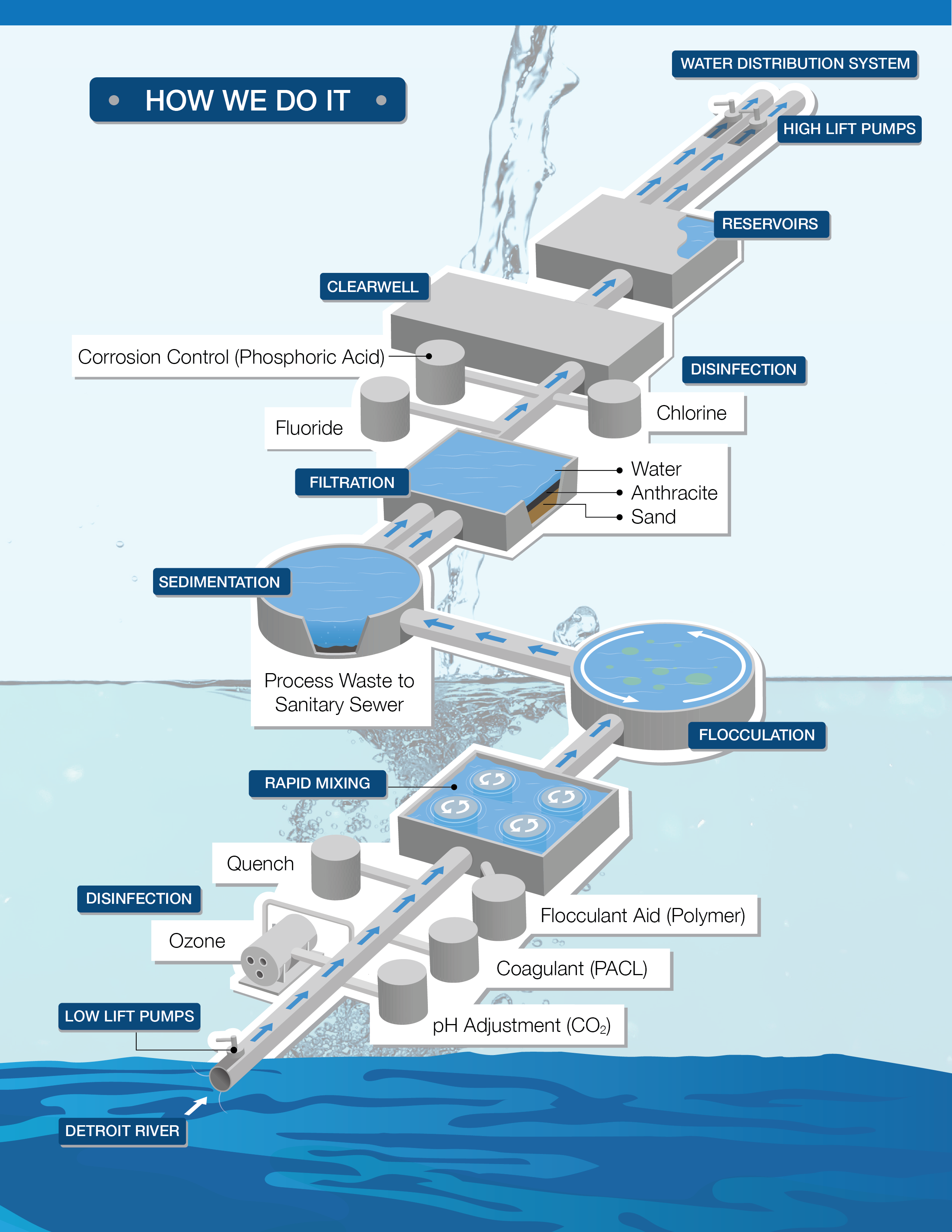Water Technology Startups for Angel Investors: Diversifying Your Portfolio
Checking Out Water Technology Startups: Just How They Revolutionize Sustainable Solutions
Water Technology startups are emerging as important gamers in the pursuit for lasting solutions to global water issues. These companies leverage innovative innovations to improve water efficiency and management. Their contributions address pushing challenges such as scarcity and contamination. Nevertheless, despite their potential, they encounter numerous challenges that could influence their success. Comprehending these dynamics sheds light on the future of water sustainability and the function these start-ups may play fit it.
The Relevance of Water Technology in Today's World
As global water deficiency escalates, the relevance of water Technology comes to be increasingly noticeable. Water Technology plays an essential duty in resolving the challenges postured by enhancing and reducing fresh water resources demand. It includes a broad variety of developments, including innovative filtering systems, wastewater therapy innovations, and clever watering services. These advancements not just boost the efficiency of water usage yet likewise promote lasting methods across numerous fields, consisting of agriculture, industry, and urban growth.
The value of water Technology expands beyond resource administration. It promotes durability versus environment change impacts, such as floodings and droughts, by providing flexible remedies for water preservation and administration. In addition, it supports public health and wellness by ensuring accessibility to risk-free and tidy drinking water. As the globe encounters growing water-related difficulties, the combination of sophisticated water modern technologies is important for promoting lasting growth and securing water schedule for future generations.
Innovative Solutions From Water Tech Startups
While traditional techniques to water monitoring have actually served their objective, a new age of water tech startups is reinventing the sector with ingenious remedies (Water Technology Startups). These firms leverage cutting-edge technologies to attend to pushing water concerns, such as scarcity, contamination, and ineffective circulation. Several start-ups make use of expert system and equipment understanding to maximize water use and forecast demand, resulting in even more sustainable methods
In addition, numerous firms concentrate on developing sophisticated purification systems that eliminate toxins and make water safe for consumption. Others discover decentralized water therapy modern technologies, allowing neighborhoods to handle their water sources more properly. Some startups are pioneering wise watering services that lessen water waste in farming, promoting ecological conservation.
Situation Studies: Effective Water Technology Startups
Countless water Technology start-ups have arised as leaders in addressing international water difficulties with cutting-edge techniques. One noteworthy instance is Xylem, which concentrates on water analytics and clever framework to maximize water use and reduce waste. Their services have actually been implemented in different districts, showing substantial enhancements in water management performance.
Another effective start-up, No Mass Water, has actually developed solar-powered hydropanels that extract water vapor from the air, supplying lasting alcohol consumption water in deserts. Water Technology Startups. This Technology has been released in a number of nations, making sure communities have accessibility to clean water
AquaVenture Holdings runs a diverse portfolio of water-as-a-service services, addressing water scarcity through desalination and wastewater therapy. Their jobs have proven necessary in regions facing severe water shortages, showcasing the possibility of ingenious water innovations to produce enduring, favorable effects. These study highlight the transformative potential of start-ups in the water Technology market.
The Role of Smart Technology in Water Administration
Smart Technology plays an important duty in contemporary water monitoring by leveraging IoT applications to maximize source usage. Information analytics boosts effectiveness by providing workable understandings, while remote monitoring solutions allow real-time oversight of water supply. With each other, these technologies transform how water is handled, advertising sustainability and functional effectiveness.
IoT Applications in Water
As water deficiency and monitoring obstacles magnify internationally, the integration of Internet of Points (IoT) applications has actually become a crucial service in maximizing water resources. IoT Technology helps with real-time tracking and evaluation of water systems, enabling more efficient usage and administration. Sensing units deployed in numerous water facilities can track high quality, flow rates, and leak, supplying important data to stakeholders. This data equips energies and consumers to make enlightened choices, reducing waste and boosting preservation efforts. In addition, smart irrigation systems use IoT to maximize water delivery for farming, guaranteeing that plants obtain the correct amount of water at the correct time. On the whole, IoT applications are transforming standard water monitoring techniques, promoting sustainability and durability in water resource systems.
Data Analytics for Efficiency
Harnessing data analytics is necessary for enhancing efficiency in water management. Water Technology startups are progressively making use of advanced analytics to optimize source allowance and minimize waste. By examining data from various resources, these startups can identify patterns and trends that notify far better decision-making. Anticipating analytics can forecast water demand, allowing utilities to readjust supply appropriately, therefore lessening scarcities and surpluses. Furthermore, real-time data handling makes it possible for the instant detection of leakages and inadequacies within distribution systems, greatly reducing functional prices. Data-driven insights empower stakeholders to apply targeted conservation strategies, fostering lasting methods. Fundamentally, incorporating data analytics right into water administration not only simplifies operations but likewise advertises long-lasting sustainability in water source usage.
Remote Surveillance Solutions
While conventional water monitoring systems often fight with inadequacies, remote tracking remedies are transforming just how water resources are taken care of. These ingenious technologies make it possible for real-time data collection and evaluation, allowing stakeholders to check water high quality, circulation rates, and usage patterns from afar. Making use of sensing units and IoT devices, remote tracking offers prompt insights that help with aggressive decision-making. This change not only improves functional effectiveness yet also promotes sustainability by minimizing water waste and maximizing resource allotment. In addition, remote monitoring systems can identify potential problems prior to they rise, thereby reducing the threat of contamination or facilities failing. As water Technology start-ups continue to establish these options, the market is poised for substantial advancements in lasting water administration methods.
Difficulties Facing Water Technology Startups
Water Technology start-ups come across considerable obstacles that can hinder their growth and success. Secret issues include safeguarding sufficient funding, maneuvering via complex regulative environments, and competing in a crowded marketplace. These barriers require tactical planning and technology to overcome.
Funding and Investment Challenges
Technology in water Technology holds tremendous potential for dealing with global challenges, start-ups in this field frequently face significant financing and financial investment hurdles. Several financiers remain cautious, viewing the water field as risky due to its intricate regulative landscape and long growth timelines. Furthermore, startups typically struggle to show instant profitability, which can prevent potential backers. Traditional financial backing might neglect water modern technology, preferring fields with quicker returns, such as technology or durable goods. In addition, safeguarding gives and federal government financing can be affordable and lengthy, more complicating monetary stability. Water Technology Startups. As a result, numerous cutting-edge water Technology start-ups discover themselves in a perilous setting, needing creative funding strategies to browse these economic obstacles and achieve their objectives
Regulatory Conformity Issues
Guiding regulative conformity is a significant difficulty for start-ups in the water Technology industry, as they must come to grips with a myriad of neighborhood, national, and global guidelines. These policies usually include water top quality criteria, environmental management legislations, and safety methods, which can vary widely throughout jurisdictions. Startups may locate it difficult to navigate this complicated landscape, specifically when scaling procedures or going into new markets. The prices linked with compliance can be considerable, diverting sources away from innovation and item advancement. Furthermore, delays in acquiring essential permits or accreditations can impede growth and market entrance. As a result, a robust understanding of regulative structures is crucial for these start-ups to assure lasting operations and avoid potential legal consequences.
Market Competition Dynamics
As water Technology startups arise in a competitive landscape, they encounter various obstacles that can hinder their development and innovation. Developed firms commonly control the marketplace, leveraging resources and experience to preserve their placements. Start-ups battle with limited funding, which limits r & d capacities, making it tough to compete on Technology and prices. Additionally, the swiftly progressing nature of water innovations needs constant adaptation, more stressing startup resources. Regulatory obstacles can make complex market entry, as conformity with ecological criteria is crucial yet costly. Finally, attracting knowledgeable skill in a specific niche field offers one more challenge, as larger firms might use more attractive work plans. Subsequently, these aspects create a complex atmosphere for water Technology start-ups aiming to do well.

The Future of Water Technology and Sustainability

The future of water Technology will likely concentrate on incorporating expert system and data analytics to optimize water distribution and usage patterns. By utilizing real-time data, companies can forecast scarcities and take care of resources better. Lasting practices will certainly become a cornerstone of the industry, encouraging round economic climates where water is recycled and dealt with. Ultimately, the ongoing evolution of water Technology will be important in creating resilient frameworks qualified of satisfying the difficulties posed by environment adjustment and populace growth while advertising ecological stewardship.
Regularly Asked Concerns
What Are the Trick Metrics for Assessing Water Technology Startups?
Key metrics for examining water Technology startups include market possibility, scalability, client procurement prices, earnings growth, modern technology advancement, regulatory compliance, ecological influence, competitive advantage, and group competence, all critical for determining long-term viability and success.
Exactly How Can People Assistance Water Technology Innovations?
People can support water Technology developments by spending in startups, advocating for policy changes, taking part in area efforts, sharing knowledge regarding sustainable practices, and advertising recognition of water problems via local occasions and social media.
What Prevail Funding Resources for Water Technology Startups?
Typical financing resources for water tech start-ups include financial backing, government gives, crowdfunding platforms, angel investors, and company partnerships. These economic methods assist assist in innovation and growth in lasting water monitoring innovations.

Which Industries Advantage Many From Water Technology Advancements?
Industries such as farming, power, manufacturing, and municipal solutions profit considerably from water Technology innovations. These advancements enhance water performance, lower prices, and promote lasting methods, ultimately contributing to ecological conservation and source management.
Exist Any Regulative Challenges Particular to Water Innovation?
Yes, water Technology faces governing difficulties, consisting of compliance with ecological criteria, permitting processes, and differing local guidelines. These intricacies can prevent development and reduce the application of new modern technologies in the water administration market.
Water Technology startups are emerging as vital players in the quest for sustainable services to global water problems. As worldwide water deficiency increases, the significance of water Technology becomes increasingly evident. Others discover decentralized water treatment technologies, permitting communities to manage their water sources extra successfully. An additional effective start-up, Zero Mass Water, has created solar-powered hydropanels that extract water vapor from the air, giving lasting alcohol consumption water in dry regions. Their tasks have actually verified vital in regions facing severe water shortages, showcasing the capacity of ingenious water modern technologies to develop lasting, positive influences.